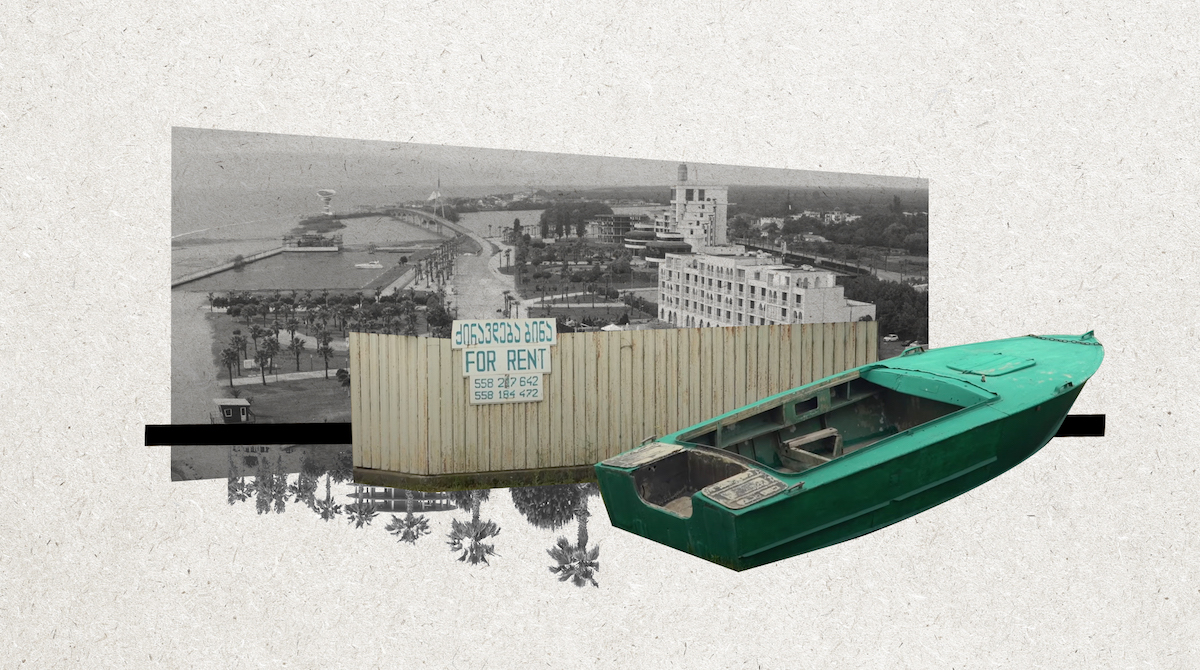Can Georgian economy withstand political crisis? Economist's opinion
Georgia faces economic crisis
After Georgia’s ruling party-appointed Prime Minister Irakli Kobakhidze officially announced the suspension of EU integration on November 28, the country’s economic stability came under serious threat.
For instance, the lari’s exchange rate immediately began to decline, losing 13 tetri in just a few days.
For over three weeks, the streets of Tbilisi and other Georgian cities have been filled with pro-European protests. Tens of thousands of people are demanding protection of the constitution, which enshrines the country’s course toward EU integration, and the holding of new parliamentary elections to lawfully change the government.
The opposition, the president, and civil society consider the October 26 parliamentary elections fraudulent, refusing to recognize the legitimacy of the parliament, its government, or the newly elected president.
In response, authorities have resorted to violent crackdowns on peaceful demonstrations, beatings, and arrests of activists. Police violence has added another key demand to the protests—the release of detained activists.
This escalating political crisis poses an increasing threat to the country’s economy. Police brutality and blatant violations of the law have significantly heightened the likelihood and scope of Western sanctions against Georgian government officials.
What’s next for Georgia’s economy? JAMnews put this and other questions to Beso Namchavadze, an economic analyst at Transparency International Georgia.
Are there signs of economic crisis in Georgia?
“At present, Georgia is not experiencing an economic crisis, but the risks have grown so significantly that one could erupt at any moment.

The situation is highly volatile. Paradoxically, Georgia’s recent years of high economic growth are largely a byproduct of the Russia-Ukraine war.
The war has brought billions of dollars into Georgia from Russia and boosted the country’s role as a transit hub.
Around 100,000 Russians, Ukrainians, and Belarusians have relocated to Georgia, bringing considerable financial resources. Many of them are highly skilled professionals who have established businesses in Georgia, contributing to economic growth.
However, the “war effect” is finite, and its impact on the economy will weaken from next year.
Whether this situation evolves into an economic crisis depends entirely on Western sanctions.
If sanctions are absent or minimal, economic growth rates will decline, the lari will experience some depreciation, but a full-blown crisis is unlikely.
A crisis, in economic terms, means contraction of the economy, rising unemployment, increasing public debt, and potentially a sharp spike in prices, among other issues.”
The past few months have revealed the vulnerability of Georgia’s economy to sanctions. A mere mention of sanctions by the U.S. State Department, followed by measures targeting a few individuals, was enough to trigger a sharp depreciation of the lari and a decline in TBC Bank and Bank of Georgia’s stock prices on the London Stock Exchange.
This reflects the deeply anxious expectations among the population and especially within the business community. Many believe that sanctions could plunge the country into a crisis.
In brief, events could unfold as follows:
- If Ivanishvili’s government fails to ease the political crisis by taking appropriate measures, sanctions are inevitable.
- These sanctions would swiftly lead to economic problems.
How severe these economic issues become and whether they escalate into a full-blown crisis that collapses Georgia’s economy depends entirely on the scope and severity of the sanctions.
What could sanctions and Western isolation mean for Georgia?
? Today, the U.S. and the EU possess all the tools to push Georgia’s economy into crisis and force the government to pay a high price.
However, they continue to believe sanctions should be designed to directly punish those responsible—those who perpetrate violence, corruption, and illegitimately seize state institutions—without harming the Georgian population.
Georgia’s small, open economy is heavily reliant on the West. Each year, $8–9 billion flows into the country from Western nations. This figure includes remittances from migrants, exports, tourism, investments, public and private sector loans, grants, and more.
This amounts to nearly one-third of Georgia’s economy.
? This sum cannot be entirely replaced. But even a 20–25% reduction would make an economic crisis in Georgia unavoidable.
The stability of Georgia’s economy heavily depends on the lari’s exchange rate, as the country is highly import-dependent.
The level of dollarization is significant. Half of all bank deposits and loans are in foreign currency, and 75% of the national debt is denominated in foreign currency.
If severe sanctions are imposed, the sequence of events could unfold as follows:
● Sanctions would lead to significant lari depreciation, making imports more expensive.
● High inflation would ensue.
● Loans taken by the population and government in foreign currency would become costlier. The National Bank would be forced to raise interest rates, making borrowing more expensive and stalling economic growth.
● Stock prices of major Georgian companies listed on the London Stock Exchange would drop as the value of their assets, denominated in foreign currency, declines. Investor expectations would worsen, prompting them to sell off shares.
● These simultaneous negative processes would spark panic among the population, worsening the crisis. For instance, many might withdraw their bank deposits out of fear, dealing a significant blow to the banking sector.
● A mass shift to converting savings into dollars, including by members of the ruling Georgian Dream party and affiliated businessmen, would further strain the exchange rate and exacerbate existing issues.
● Currently, Georgian banks hold 28 billion lari in deposits. Imagine the fallout if depositors began withdrawing or converting this sum into dollars.
● Additionally, over the past year, the National Bank has depleted $1.6 billion of its foreign reserves, leaving it with far fewer resources to stabilize the lari.
? However, much depends on the type of sanctions imposed. Simple visa restrictions on top Georgian Dream officials are unlikely to trigger a crisis.
This might create some economic challenges but not enough to collapse the system.
A different scenario arises if individual sanctions become intolerable for some officials, forcing them to make concessions—though this remains speculative.
? Financial sanctions, however, alongside visa restrictions, would present much greater challenges for both the sanctioned individuals and the country as a whole.
For instance, if financial sanctions were applied to the prime minister and other top officials, the repercussions would extend beyond individuals to the overall economic landscape:
● Georgia could be categorized as a high-risk country, driving investors away.
● Grants from foreign governments might cease entirely, and loans could also be halted.
● The banking sector would face immense pressure, complicating international transactions.
● The new rule introduced by the National Bank, which prevents Georgian banks from enforcing Western sanctions on Georgian citizens without a Georgian court decision, would worsen the situation. This would place banks in an extremely precarious position, especially as bankruptcies rise.
Belarus is withstanding sanctions for now due to its economy’s dependence on Russia. For Georgia, sanctions would be far more devastating.
What restrictions have Western partners implemented so far?
● The U.S. imposed financial sanctions on five individuals and visa restrictions on several dozen others.
● The Baltic states introduced visa restrictions.
● The EU, the U.S., and several European countries have suspended grants to the Georgian government.
For now, that’s the extent of the measures. The more impactful sanctions, particularly individual ones, are likely yet to come.
Processes in Georgia are often compared to Belarus, but the two nations are worlds apart when it comes to sanctions. Belarus faces stringent measures, most linked to its support for Russia’s war in Ukraine. This is unlikely to be Georgia’s scenario.
Belarus, however, has been less dependent on the West, relying instead on Russia, which has allowed it to endure sanctions—albeit in a stagnant economy over the past decade.
If Georgia were to face even a fraction of the sanctions imposed on Belarus, its economy would collapse. The government would have no choice but to make concessions.
A crisis could become so severe that the government would struggle to pay salaries and pensions.
Belarus’s sanctions at a glance:
● Prohibited from using central bank reserves on international markets.
● International state banks, such as the World Bank and EBRD, ceased financing Belarus.
● Four major Belarusian banks were disconnected from SWIFT.
● Western companies are barred from providing services to Belarusian state-owned enterprises.
● The U.S. imposed sanctions on the Belarusian Ministry of Internal Affairs, the Central Election Commission, and other government bodies.
? These are extremely strict measures. Georgia’s economy would not withstand such pressure.
In the worst-case scenario, Georgia’s government might seek to replace Western funds with money from Russia or other Asian countries. However, this would only further inflame public discontent. Moreover, Asian countries are unlikely to cooperate with a nation under sanctions.
Such an alternative would take a significant amount of time to implement and is far from a quick solution.




















